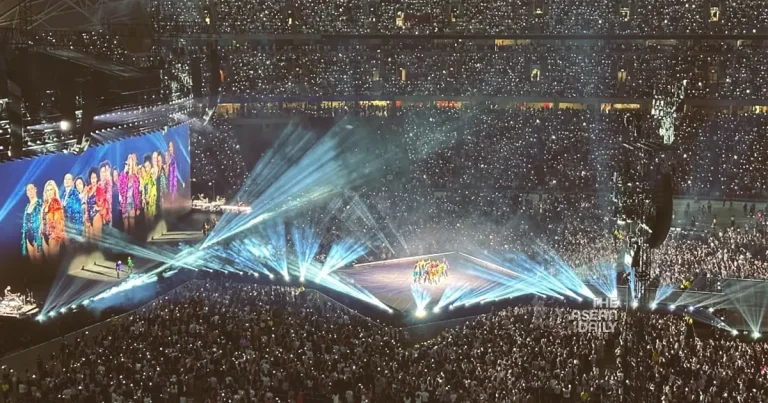26-4-2024 (SINGAPORE) Singapore experienced a notable economic upswing in the first quarter of 2024, thanks to a surge in tourism activity fueled by concerts featuring British rock band Coldplay and American pop sensation Taylor Swift, as reported by the Monetary Authority of Singapore (MAS) on Friday.
The concerts, held at the National Stadium, Singapore’s largest venue, attracted an audience predominantly from overseas, with Coldplay performing in January and Swift in March. MAS’s macroeconomic review, released biannually, highlighted the significant impact of these events, spanning 12 days in total, on Singapore’s tourism landscape.
Coldplay’s four shows alone sold over 200,000 tickets, while Swift’s concerts amassed more than 300,000 ticket sales. These performances coincided with a 50 per cent surge in international visitor arrivals in the first quarter compared to the previous year, reaching a total of 4,353,500 visitors. This marks a 26 per cent increase from the last quarter of 2023.
Despite a pullback in manufacturing activity, particularly in the biomedicals and electronics clusters, Singapore’s economy expanded by 2.7 per cent year-on-year in the first quarter, surpassing the 2.2 per cent growth recorded in the previous quarter of 2023.
The large-scale concerts are estimated to have generated tourism receipts ranging from S$350 million to S$450 million, according to private-sector analysts. This injection, equivalent to a 6 per cent increase above the average quarterly tourism receipts of the preceding year, has provided a significant boost to sectors such as air transport, accommodation, arts, and retail.
Hotel occupancies surged to 80 per cent in the first two months of the year, up from 77 per cent in the previous quarter, indicating heightened demand driven by the concert events. Notably, demand for flights and accommodation spiked by up to 30 per cent around Swift’s concert dates, as Singapore served as the exclusive Southeast Asian stop for her Eras Tour.
While the concert-induced windfall is expected to be temporary, Singapore’s economic growth trajectory for the remainder of the year will be influenced by global macroeconomic trends, technological advancements, and interest rate cycles. MAS forecasts Singapore’s GDP to range between 1 per cent and 3 per cent for the year.
The global semiconductor industry, poised for expansion, is expected to bolster trade-related sectors, while the financial sector’s recovery is anticipated to accelerate in the latter half of the year as central banks consider interest rate cuts. Additionally, the return of Chinese tourists and the continuation of concert events will contribute to sustained growth in inbound tourism, albeit at a moderated pace.
MAS also projects a gradual decline in core inflation throughout the year, with both core inflation and headline inflation averaging between 2.5 per cent and 3.5 per cent for 2024.




